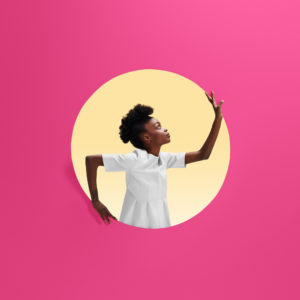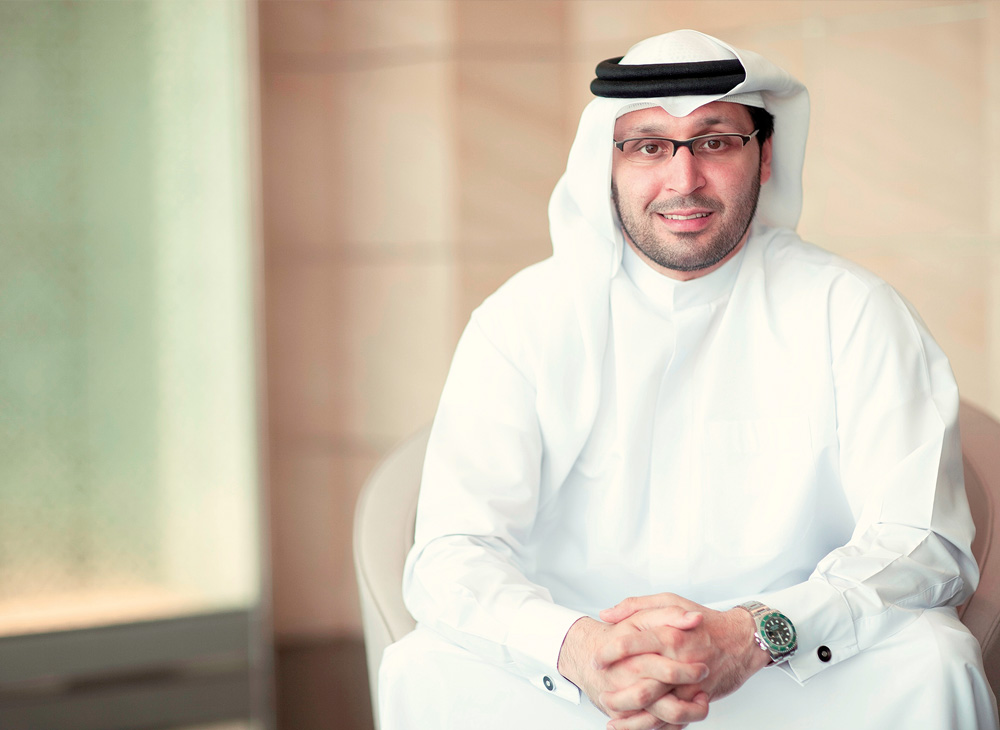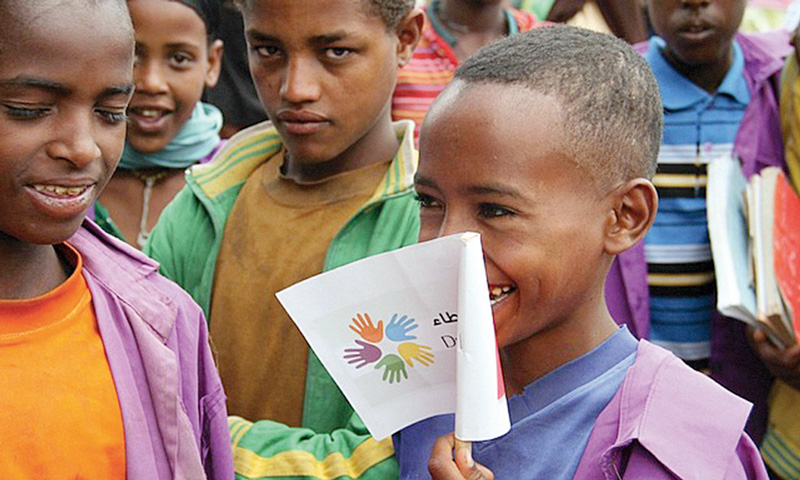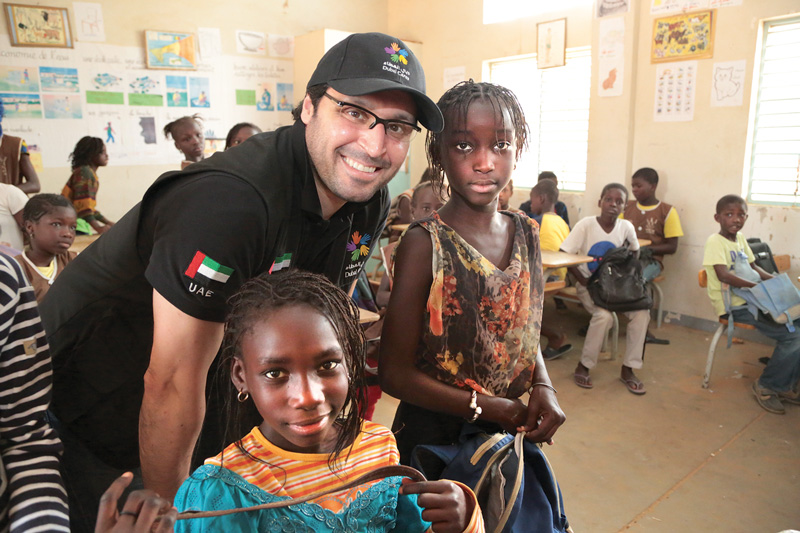


It is sending your message ...

Our founder, His Highness Sheikh Mohammed Bin Rashid Al Maktoum, Vice President and Prime Minister of the UAE and Ruler of Dubai, believes in the power of education to eradicate poverty. He recently launched the Mohammed Bin Rashid Al Maktoum Global Initiative to make an impact on the world through humanitarian, developmental, and community work. Based on Al Maktoum’s vision and guidance, and in line with his new initiative, Dubai Cares continues to invest in innovative solutions to address global education challenges; its overall aim is ensuring that children flourish, and in turn initiate long-lasting change in their communities.
Over the past 10 years, Dubai Cares programs have reached 16 million beneficiaries in 45 developing countries, helping combat poverty and malnutrition through education. This integrated and holistic programming addresses both the barriers to accessing education and the issue of quality of education. By combining it with a rigorous framework for research, monitoring, and evaluation, we aim to maximize the impact of our programs and ensure that our investments make a difference.
As a private philanthropic foundation, we can be more flexible and agile than many traditional donors. In addition, we like taking risks. This shows in our programming approach: we design innovative pilot programs, and rigorously collect evidence during their implementation. Then, if they prove successful, we advocate for national governments to adopt them and take them to scale through bi- and multilateral mechanisms.
Dubai Cares also invests significantly in research and generating evidence. We are currently funding several ongoing randomized control trials, and have recently launched a US$10 million research envelope called E-Cubed. It aims to generate evidence for education in emergencies, a sector that is notoriously data-poor because it is so difficult to collect data in emergency and crisis contexts. Most of our programs are based on evidence and we seek to have the maximum possible percentage of our programs contribute to the evidence base.
Throughout my banking career, which lasted from 1996 to 2008, I always had a personal tendency to carry out charity and development work. In 2006, I was part of a group of people who co-founded the UAE Genetic Diseases Association (GDA); I ran a fundraising campaign to support its mandate. On a personal level, I feel that charity runs in my blood. Therefore, when I was given the opportunity to lead Dubai Cares as its chief executive officer, I did not think twice about accepting this offer.
The first thing I did on joining Dubai Cares was to research the progress of the organization since it was started. That research showed me the task ahead: not only manage the entire organization and oversee the design of its programmatic interventions in developing countries, but also utilize my banking skills to manage the hundreds of millions of dollars that have been raised to fund these projects. Based on that, I made the decision to join Dubai Cares for the long haul. It was a fairly easy decision to make once I looked at the overall picture and the deep personal satisfaction I would gain in making a difference in children’s lives around the world.
I am passionate about my job, so I try to maintain a healthy balance between my work and my family. As chief executive officer of Dubai Cares, I spend about half of my time in the office, and the rest travelling for work. My travel schedule is usually quite hectic as I travel to our beneficiary countries on field visits in order to assess programs, to meet partners, government officials, and community members, and to understand the situation on the ground. In parallel to Dubai Cares’ growth in the international sphere, I also attend high-level international meetings that set the agenda for global education.
My free time is largely dedicated to my family. I think it is important for my children to understand what I do; therefore, I have many photos of me with children in the field, which I share with my daughters. My eldest daughter regularly checks the photos and asks me questions about the various countries we travel to, activities we organize, the poverty in countries where we operate, and how we help children there. She is aware of poverty in developing countries and the negative impact it has on children.
I rarely have the opportunity to meet with my friends, but I do my best to catch up with them sometimes over the weekend.

Dubai Cares field trip to Ethiopia (2011).
Whether in my country or on field visits to beneficiary countries, international conferences or meetings, there are three activities I always engage in listening, communicating, and taking action.
Listening is key; the more we listen the more we are informed. When I meet people during my visits, I listen to the problems and challenges they are facing. I spend time with officials, stakeholders, peers, teachers, and even children to gain as much insight as possible.
Second to listening is effective communication. As the world is going through more emergencies than ever before, the funding for our sector has been falling.
Listening gives me the ability to express my thoughts based on first-hand research; therefore, I can speak with confidence about the importance of education in shaping future generations. I try to ensure that I communicate regularly with senior officials and key actors in the education sector to understand their needs and challenges and exchange ideas.
In short, leaders need to talk about education and ensure that it is on their agenda to ensure it is not neglected. For my part, I stress the importance of education whenever I can, and talk about how education can break the cycle of poverty for coming generations.
Finally, I believe in taking action. After listening, communicating, and understanding, I take the risk to develop new models and invest in research. I always try to focus on areas or sectors within education that are not receiving enough funding. As a reflection of this, for example, Dubai Cares has made significant commitments to education in emergencies in the past two years, and we have also boosted our support to small island states in the Pacific Ocean and in the Caribbean that are particularly vulnerable to the negative effects of climate change. I also go to countries where the education system is fairly good, but one of its components is still facing challenges such as gender inequality.
Given the large number of programs that we have implemented in over 45 countries, we do face challenges and risks when implementing our programs.
We usually come face-to-face with these challenges when we conduct our monitoring and evaluation (M&E) visits. For instance, during one such visit to a country, we found out that our program was not implemented as agreed. In another country, the partner had lowered the number of beneficiaries agreed upon without informing us—and had requested extra funding. All these situations put Dubai Cares in an embarrassing position, but our program managers have clear procedures to follow for risk mitigation and management, and we work hard as a team to ensure that our programs achieve their intended outcomes within the allocated budgets and timeframes. Regular communication with our partners and field visits to our project sites are key to our success. Therefore, we conduct as many field visits as possible, as we learn so much from them. We also strive to ensure that our partners are positioned as well as possible to deliver the changes we wish to see. Therefore, when we’re selecting implementing partners, we focus on the capacities and capabilities of the people in the field so we can maximize the likelihood that our programs are delivered efficiently and in a timely manner.
I believe that innovation is key in any industry. At Dubai Cares, we continuously seek out innovative ways of programming. We are implementing game-changing thinking, for example partnering with non-traditional implementers such as Sesame Workshop to deliver STEM education to girls in Mexico, and Sinfonia por el Peru to ensure the quality of education and learning for disadvantaged children in Lima through musical education.
Furthermore, Dubai Cares has funded a 3-year Home Grown School Feeding (HGSF) program in Ethiopia to improve the education, health, and nutrition of school-aged children across the Southern Nations, Nationalities, and Peoples’ Region (SNNPR). To meet this goal, the funding was used to deliver an integrated program of Water, Sanitation, and Hygiene (WASH), HGSF interventions, and deworming treatments that aimed to reduce the prevalence of neglected tropical diseases, namely soil-transmitted helminths (STH) and schistosomiasis.
Dubai Cares is an organization working to provide children with access to quality education. Our focus is on education because we strongly believe that it is one of the most effective tools to break the cycle of poverty worldwide. Therefore, we are trying to transform the education systems in developing countries to make education a tool for children in defining their future and breaking the cycle of poverty. Our ultimate goal is to shape the future of today’s children by educating them so they can positively influence and change the societies they live in.
To ensure that our programs are truly transformative, we invest in pilot programs and in research. In order to understand what really works and what can be scaled up to be truly transformative on a larger scale, we invest significantly in collecting evidence. We fund research, including randomized control trials which meet the highest standards as impact assessments in several of our programs. We do this particularly where a new model is being tested or where specific intervention modalities are being compared to try to understand which ones have the most impact and why. Only with robust evidence can we then go, together with our partners, to national governments and the international community to advocate for concrete change in the education system. In addition, we have an ongoing commitment to designing sustainable programs aimed at bringing about massive changes, ones that will impact generations to come.

Tariq Al Gurg, CEO, Dubai Cares, on a field trip to Senegal (2015).
UNESCO and Dubai Cares have signed a partnership agreement to support progress towards the Global Goal on education through a US$3 million grant to the Capacity Development for Education (CapED) program. We agreed to work together to support countries to make progress towards the Sustainable Development Goal 4 (SDG4), which aims to ensure inclusive and equitable quality education and to promote lifelong learning opportunities for all, through the design and funding of integrated, impactful, sustainable, and scalable programs.
Our partnership with UNESCO underlines our aim to effectively support developing countries in setting the appropriate mechanisms to deliver on the 2030 Agenda on Education. For a pilot group of 10 countries, CapED will build the capacity of ministry officials and ensure alignment between national education sector plans and the ambitions of the SDG4. It also aims to improve national data collection and analysis to better monitor progress towards the goal. This top-down approach will also complement Dubai Cares’ downstream interventions at the community and school levels, helping us realize our vision of a holistic approach to development.
Similarly, our US$1 million partnership with IBE focuses on strengthening the mechanisms necessary to ensure that ECCE is not only included in education sector plans, but also adopted across ministries. Resilient ECCE systems are fundamental and integral to fulfilling SDG4. Evidence shows that ECCE establishes an indispensable foundation for effective learning. Thus, the quality of education and learning, as manifest in learning outcomes, cannot be achieved without resilient and sustainable ECCE. Furthermore, by improving learning outcomes, ECCE contributes to the internal efficiency of education systems and also to more efficient use of associated resources. As such, the Dubai Cares partnership with the IBE is an essential part of our overall strategy to support the 2030 agenda.
France and Switzerland played a major role in making me a global citizen, and so did the United Kingdom as I spent a good amount of time in my teenage years in all three countries. Both France and Switzerland are special to me, as I still spend summer holidays in these two countries. As for learning French, it was my mother who always encouraged me and my siblings to learn as many languages as possible which definitely adds to my ‘global citizen’ profile. Though I have to say that I need to polish my French.